Abstract
The visit of two Tibetan physicians provided a unique opportunity to gain insight into a practice of medicine very different from that of Western civilization. Initial discussions indicated that the practice of medicine and mysticism were inextricably interwoven in the Tibetan culture. Accordingly, the focus of the study was directed to goiter, which is both common in the Himalayas and easy to define.
In Tibetan medical practice, illness is considered to be derived from both proximate and distant causes. Three humors, “wind,” “bile,” and “phlegm” are thought to be responsible for normal mental and physical functions when in balance, but disease when out of balance. Goiter was thought to be due to an imbalance of these humors. The Western discovery that endemic goiter in the Himalayas was due to iodine deficiency explained the proximate cause but did not explain why some individuals have goiter and others do not in the same iodine deficient village.
Full text
PDF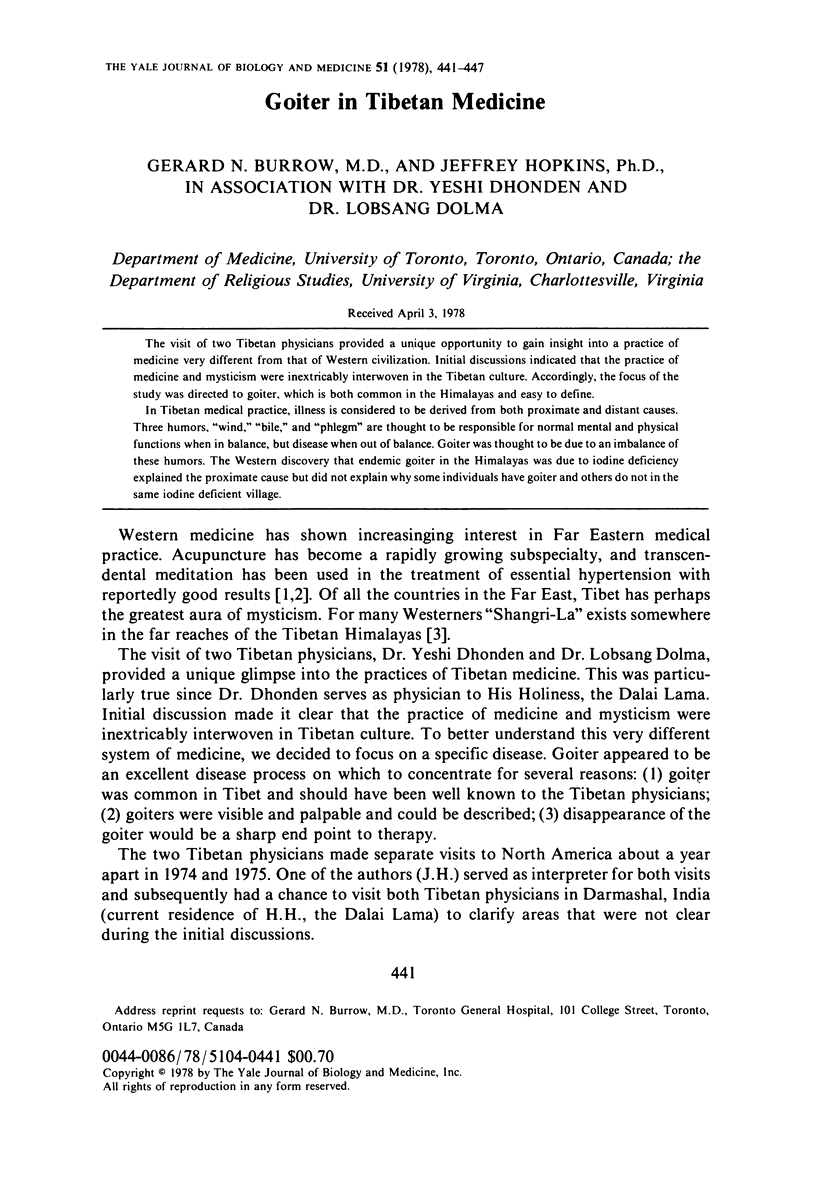
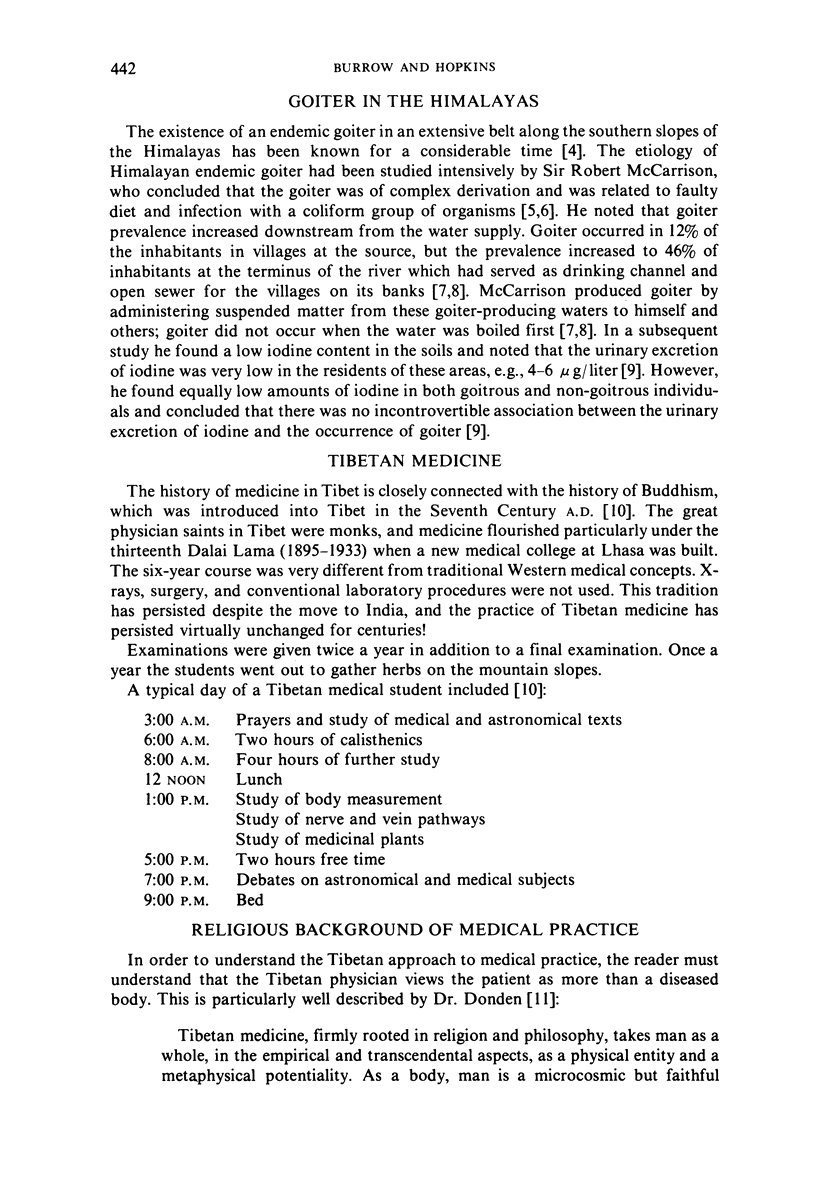
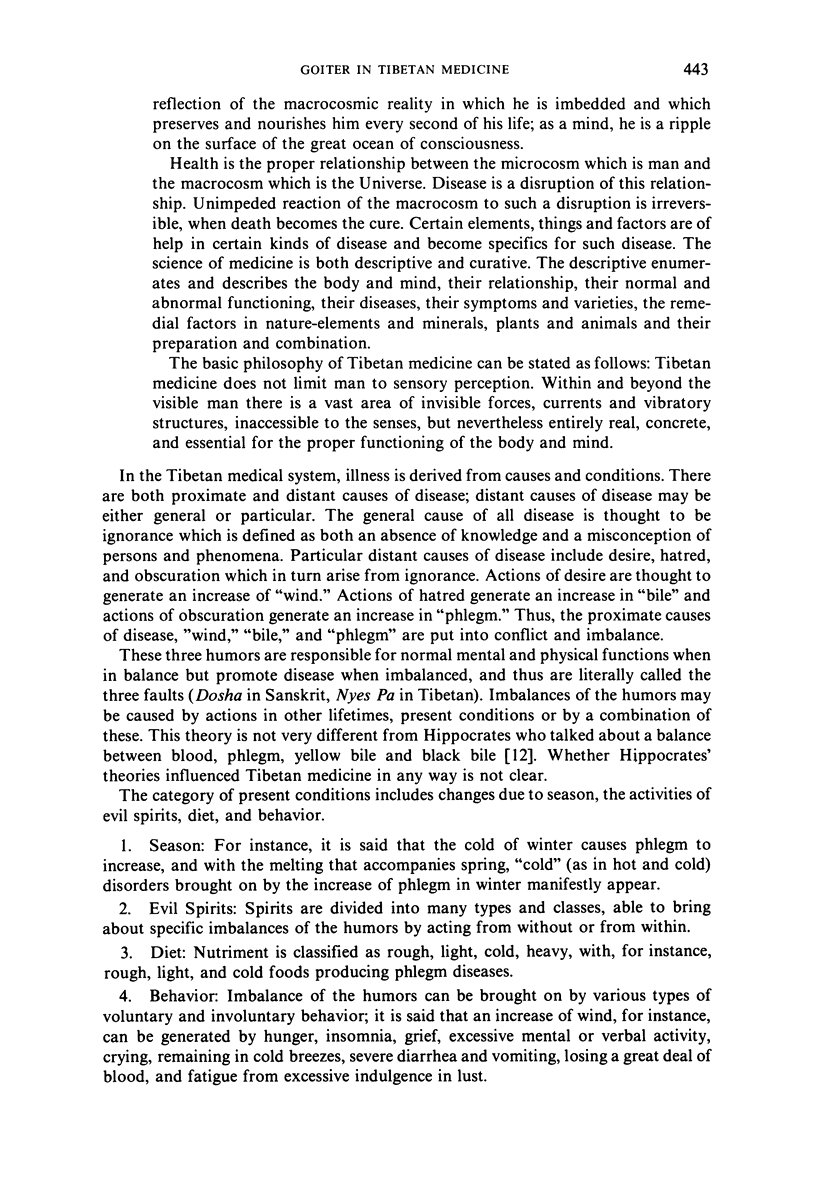
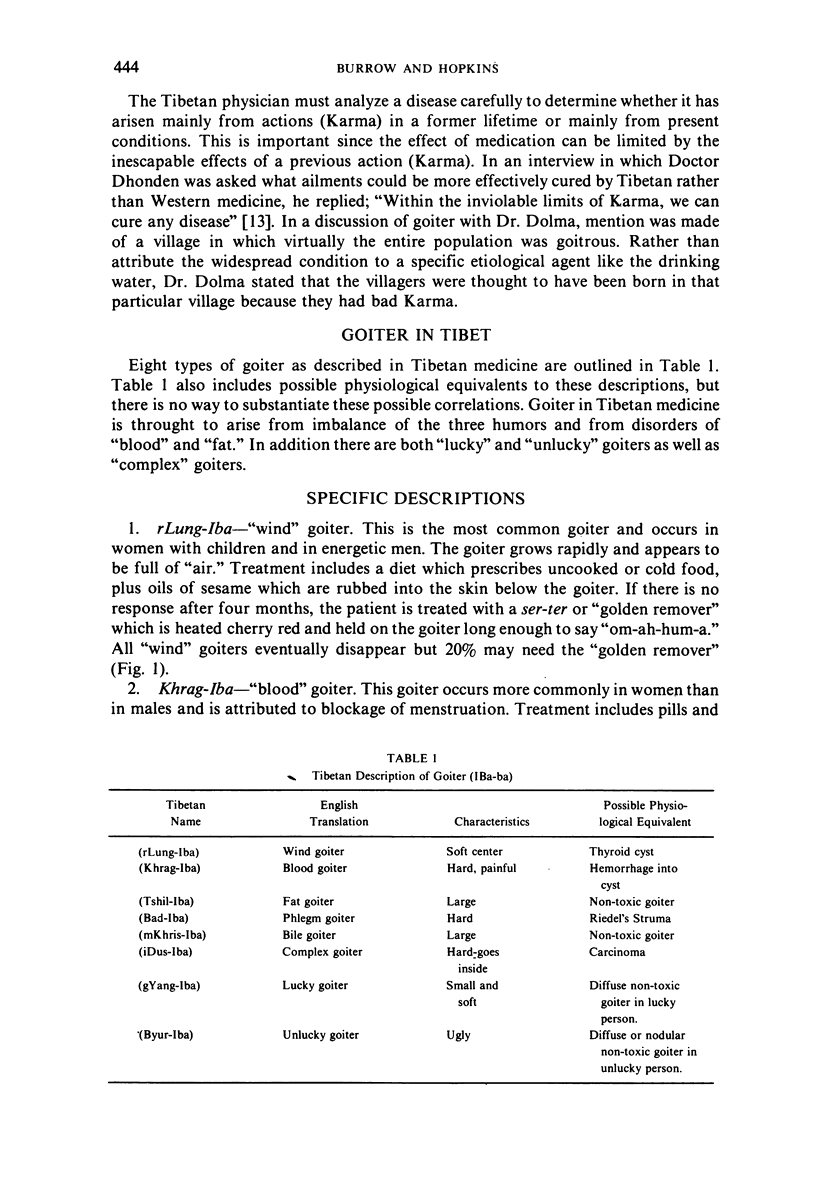
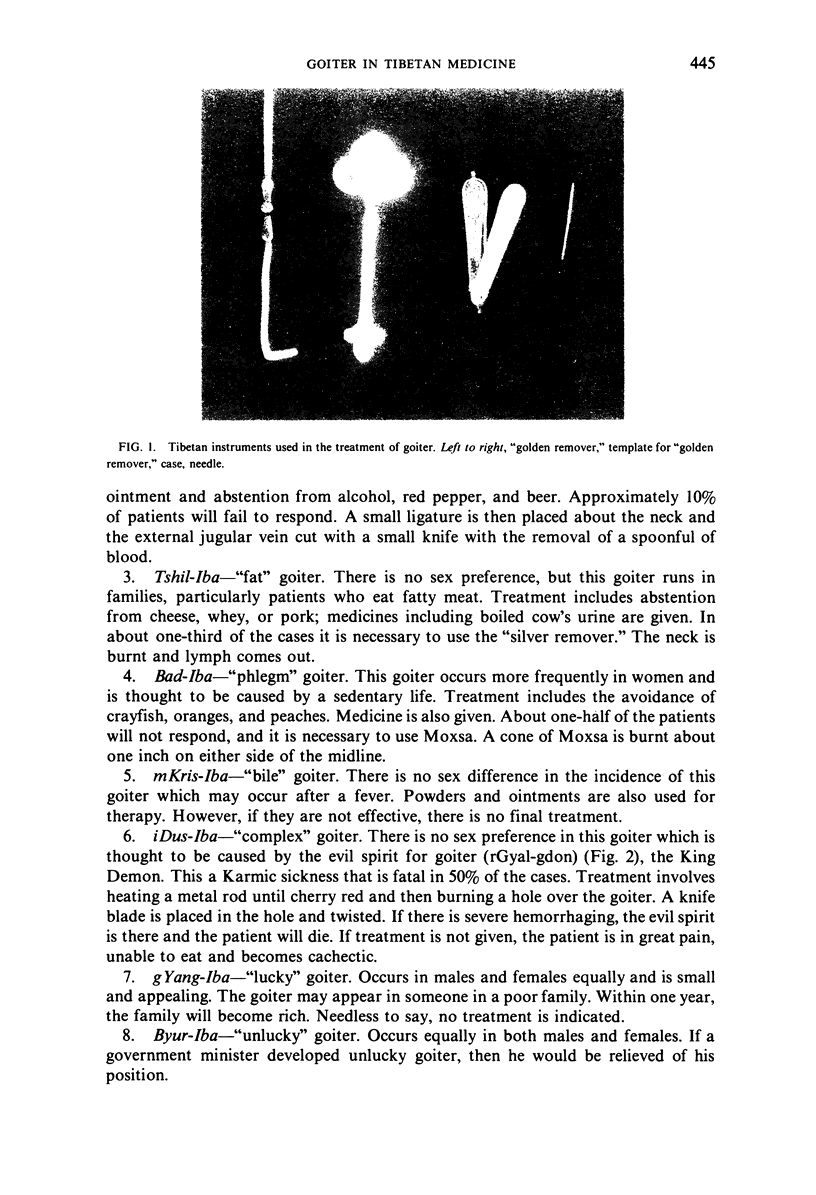
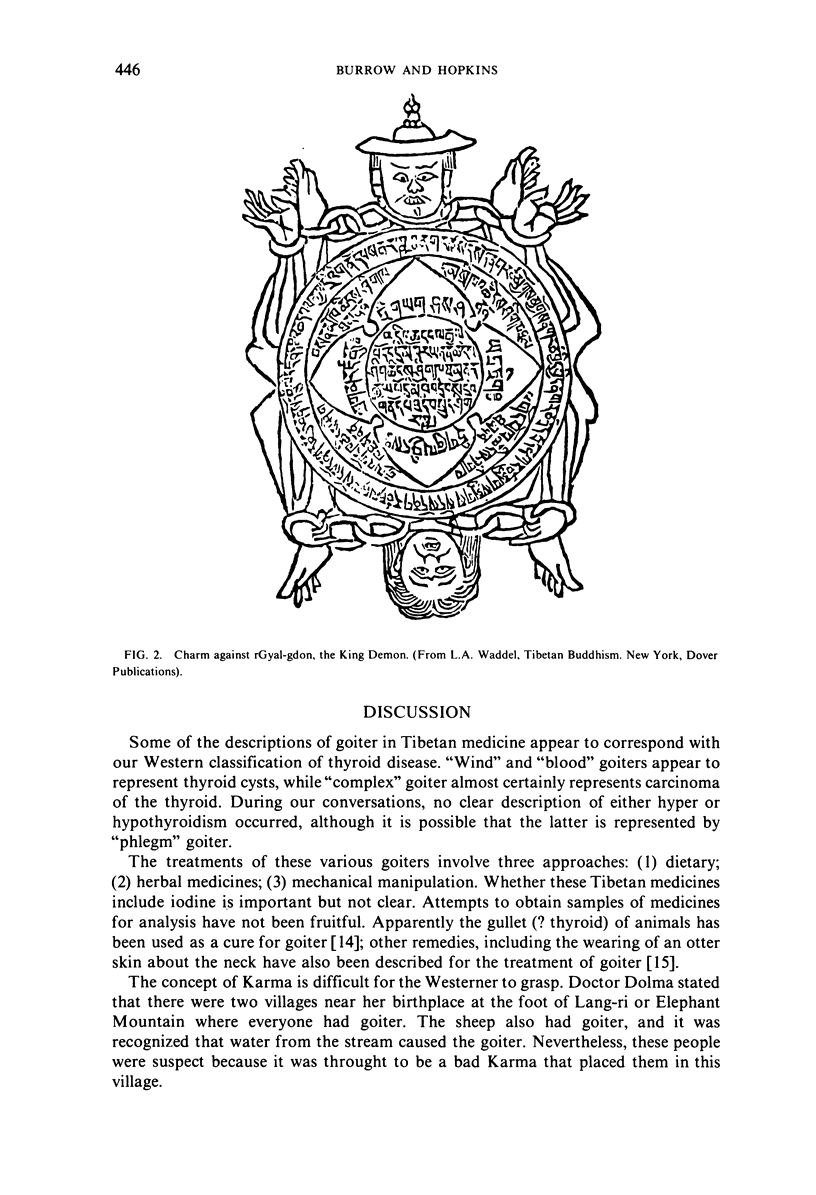
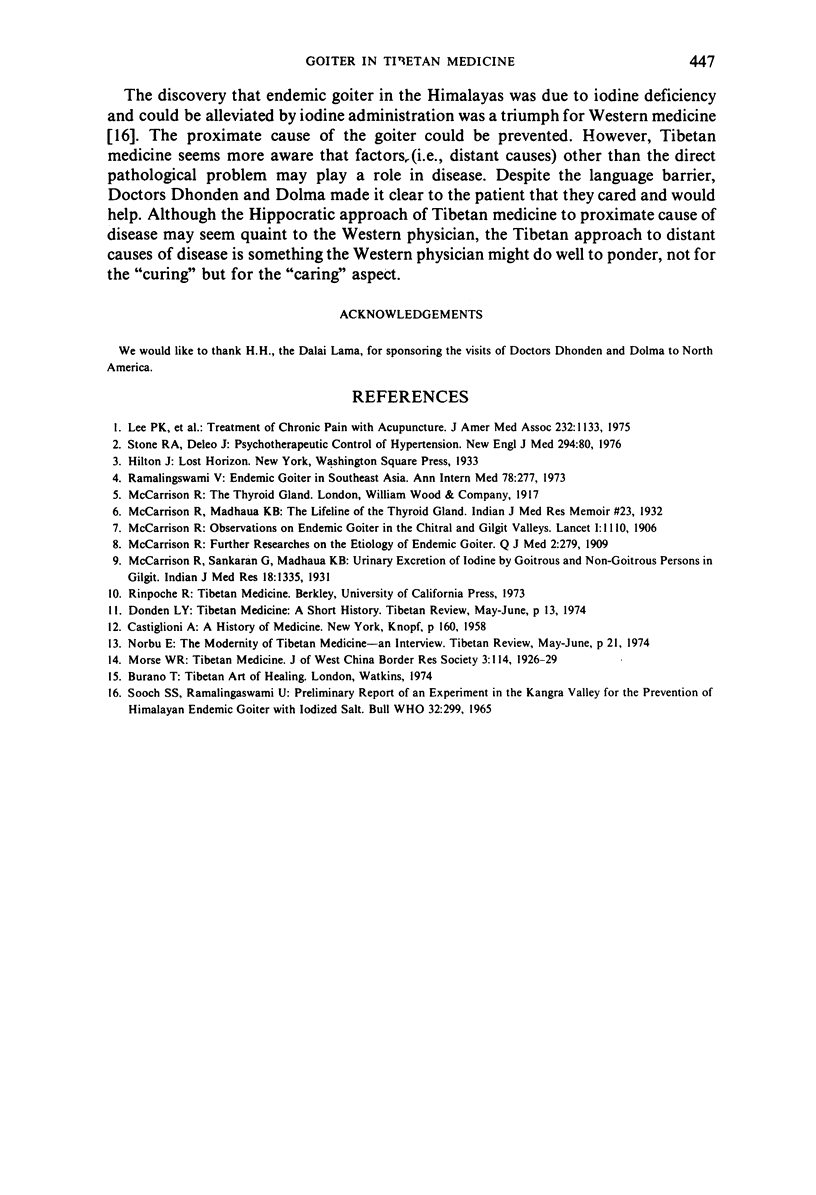
Images in this article
Selected References
These references are in PubMed. This may not be the complete list of references from this article.
- Lee P. K., Anderson T. W., Modell J. H., Saga S. A. Treatment of chronic pain with acupuncture. JAMA. 1975 Jun 16;232(11):1133–1135. [PubMed] [Google Scholar]
- Ramalingaswami V. Endemic goiter in Southeast Asia. New clothes on an old body. Ann Intern Med. 1973 Feb;78(2):277–283. doi: 10.7326/0003-4819-78-2-277. [DOI] [PubMed] [Google Scholar]
- SOOCH S. S., RAMALINGASWAMI V. PRELIMINARY REPORT OF AN EXPERIMENT IN THE KANGRA VALLEY FOR THE PREVENTION OF HIMALAYAN ENDEMIC GOITRE WITH IODIZED SALT. Bull World Health Organ. 1965;32:299–315. [PMC free article] [PubMed] [Google Scholar]
- Stone R. A., DeLeo J. Psychotherapeutic control of hypertension. N Engl J Med. 1976 Jan 8;294(2):80–84. doi: 10.1056/NEJM197601082940204. [DOI] [PubMed] [Google Scholar]



